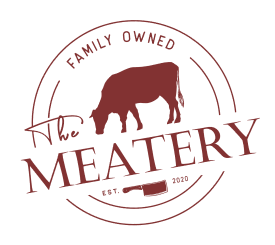Is Kobe Beef Really Worth it?
Is Kobe beef really worth it?
When discussing the world's most prestigious meats, Kobe beef consistently stands at the pinnacle of luxury dining. The question of whether Kobe beef is worth its astronomical price tag - often exceeding $200 per ounce - is complex and depends largely on individual perspectives and expectations.
From a purely culinary standpoint, authentic Kobe beef offers an unparalleled dining experience. The meat's extraordinary marbling creates a buttery texture and rich, complex flavor profile that many consider the epitome of beef quality. The fat literally melts at room temperature, and when cooked properly, the meat practically dissolves on your tongue.
However, the value proposition extends beyond mere taste. The rigorous production standards, limited availability, and centuries-old traditions contribute to its premium positioning. Only about 3,000 cattle qualify as authentic Kobe beef annually, making it one of the rarest food products in the world.
Consider these factors when determining if Kobe beef is worth the investment:
- Dining Experience: It's not just a meal; it's a bucket-list culinary adventure
- Quality Assurance: Strict certification ensures you're getting genuine, premium-grade meat
- Unique Characteristics: The meat's distinctive marbling and texture cannot be replicated
- Cultural Significance: You're participating in a centuries-old Japanese culinary tradition
For special occasions or true food enthusiasts, the experience of eating authentic Kobe beef can justify its premium price. However, it's important to note that this isn't an everyday luxury - even in Japan, Kobe beef is reserved for special occasions and celebrations.
Definition And Origin Of Kobe Beef
Kobe beef refers specifically to meat from Tajima-gyu cattle raised in Hyogo Prefecture, Japan, according to strict traditional methods. This isn't merely a marketing term - it's a protected designation of origin, similar to Champagne or Parmigiano-Reggiano.
The origins of Kobe beef trace back to the second century when cattle were first introduced to Japan as draft animals for rice cultivation. The isolated nature of Japan's islands led to the development of unique cattle breeds, including the Tajima-gyu bloodline from which authentic Kobe beef derives.
To qualify as genuine Kobe beef, the meat must meet exacting criteria:
- Sourced exclusively from Tajima-gyu cattle raised in Hyogo Prefecture
- Must achieve a marbling score of 6 or higher on a 12-point scale
- Must have a meat quality score of A4 or A5
- Must be processed in approved facilities within Hyogo Prefecture
Each certified Kobe beef carcass receives a unique 10-digit identification number, allowing for complete traceability from farm to table. This rigorous certification process ensures the authenticity and quality that has made Kobe beef legendary worldwide.
Breed And Lineage Of Tajima Cattle
Tajima cattle, the sole source of authentic Kobe beef, represent a carefully maintained bloodline within the Japanese Black (Kuroge Washu) breed. These cattle are distinguished by their smaller frame, superior meat quality, and exceptional genetic predisposition for intense marbling.
The breeding program for Tajima cattle involves meticulous record-keeping and selective breeding practices that span generations. Key characteristics of the breed include:
- Genetic predisposition for fine-grained fat marbling
- Smaller physical structure compared to other cattle breeds
- Superior meat-to-bone ratio
- Distinctive flavor profile due to genetic factors
Farmers maintain detailed genealogical records for each animal, ensuring the purity of the bloodline. This careful genetic management has resulted in cattle that consistently produce meat with exceptional marbling patterns and flavor characteristics that define premium Kobe beef.
The preservation of this unique genetic lineage represents centuries of careful breeding and selection, making Tajima cattle a living testament to Japanese agricultural heritage.
Kobe Beef History And Cultural Significance
The cultural significance of Kobe beef in Japanese society extends far beyond its status as a premium food product. For centuries, the region's cattle-raising traditions have been interwoven with local customs, religious practices, and social structures.
Historically, cattle in Japan were primarily used for agriculture and transportation, not meat consumption. The shift toward beef consumption began during the Meiji Restoration (1868-1912), when Japan opened its doors to Western influences. The unique methods of raising Tajima cattle in Hyogo Prefecture gradually evolved into the sophisticated production system we know today.
Several cultural elements distinguish Kobe beef production:
- Traditional feeding practices including beer and sake mash
- Regular massage techniques to improve meat quality
- Stress-free environment promoting cattle well-being
- Generational knowledge passed down through farming families
Today, Kobe beef represents not just a luxury food item but a symbol of Japanese craftsmanship, attention to detail, and cultural preservation. It embodies the concept of shokunin - the relentless pursuit of perfection in one's craft.
Sourcing And Sustainability
The sourcing and sustainability of Kobe beef involve a complex system of regulations, traditional practices, and modern conservation efforts. The limited production capacity is both a challenge and a safeguard for sustainable practices.
Key aspects of Kobe beef sourcing include:
- Strict geographical limitations to Hyogo Prefecture
- Small-scale, family-run farms maintaining traditional methods
- Regulated production numbers to prevent overbreeding
- Complete traceability from birth to processing
Sustainability measures focus on:
- Maintaining genetic diversity within the Tajima bloodline
- Environmental impact management
- Animal welfare standards
- Resource-efficient feeding practices
The controlled production environment ensures that authentic Kobe beef remains a sustainable, albeit exclusive, product. This careful balance between tradition and conservation helps preserve both the quality and longevity of the industry.
Exclusivity Of Kobe Beef
Kobe beef's position in the luxury market is reinforced by its genuine scarcity and exceptional quality standards. Unlike many luxury products where exclusivity is artificially created, Kobe beef's rarity is a natural result of its strict production requirements.
The luxury positioning is maintained through:
- Limited annual production (approximately 3,000 cattle)
- Strict certification requirements
- Exclusive distribution channels
- Premium pricing strategy
Global distribution is carefully controlled, with only a select number of restaurants and retailers authorized to sell authentic Kobe beef (The Meatery being one of the only that will ship Kobe Beef to your door step!) This exclusivity has created a unique market position where Kobe beef serves as the benchmark against which all premium beef is measured.
The combination of limited supply, exceptional quality, and controlled distribution has established Kobe beef as one of the world's most prestigious food products, commanding prices that reflect its exclusive status.
Why is Kobe expensive?
The exceptional price of Kobe beef is justified by multiple factors that contribute to its production costs and market positioning. Understanding these elements helps explain why authentic Kobe beef commands such premium prices.
Primary cost factors include:
-
Production Costs:
- Specialized feed programs
- Intensive care requirements
- Extended raising period (28-32 months)
- Small-scale production facilities
-
Quality Control:
- Rigorous testing and grading
- Certification processes
- Traceability systems
-
Market Factors:
- Limited supply
- High global demand
- Exclusive distribution channels
Additionally, the specialized skills required for raising Kobe beef cattle, the limited geographical area of production, and the strict adherence to traditional methods all contribute to the final cost. These factors combine to create a product whose price reflects both its production costs and its position as the world's most prestigious beef.










